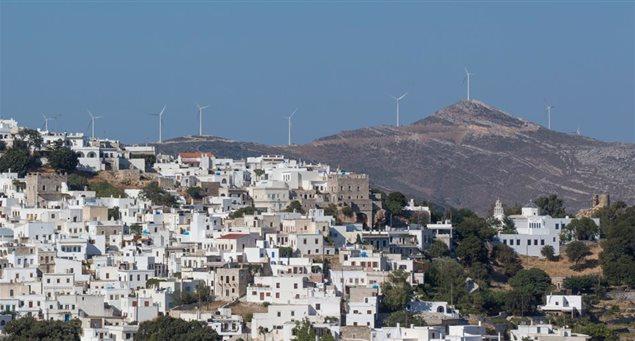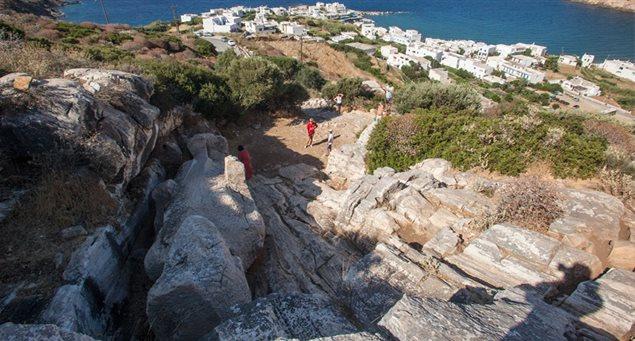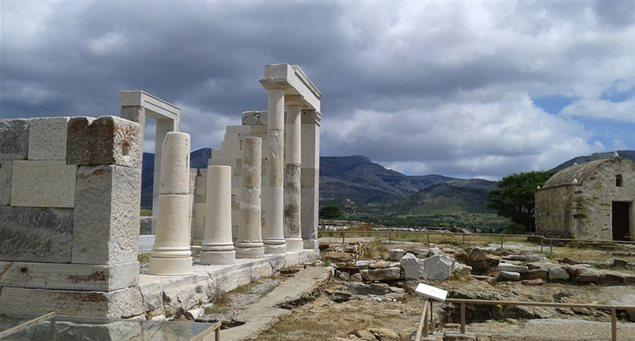
Dionysus, the ancient Greek god of merriment, was said to have originated either from the northeastern province of Thrace or the East.
Diodorus Siculus, the ancient historian, wrote that Naxiots claimed that the god had been born on their island as the son of Semele –daughter of Cadmus, king of Thebes- and king Asterius (although the true father was considered to be Zeus, as was the case for all gods).
Zeus assigned his upbringing to the Naxiot nymphs Philia, Cleide and Coronis, who raised him in Zas Caveor, according to another version, in Kako Spilio (Evil Cave) in Koronos, where the inscription “ΔΡΙΟC ΔΙΟΝΥCΟΥ” is found.
Dionysus’ male and female followers were the satyrs and the maenads (or bacchants) respectively, who danced and reveled, occasionally reaching ecstasy by drinking sweet Naxos wine.
Being the god of joy and merriment, Dionysus had ensured the fertility of vineyards on the island and the production of excellent wine. In gratitude, the inhabitants of Naxos dedicated a temple to the god at Yria.
According to Plutarch, twice a year they also held festivities in his honor, Dionysia, which included contests and sacrifices.
These took place simultaneously at Naxos city (present-day Chora) and Yria, and were held in the spring, when the vines sprouted, and in the autumn, when the grapes were harvested and trampled upon to prepare the wine.




